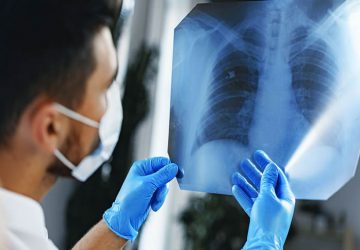Discover Proven Strategies to Slash Your Lung Cancer Risk
The ominous threat of lung cancer casts a dark shadow, yet proactive steps towards prevention offer a beacon of hope. While it’s impossible to completely eradicate the risk, adopting several measures can slash the likelihood of succumbing to this affliction.

Quit Tobacco Use
Smoking stands as the principal villain in the vast number of lung cancer incidents. Toxins in tobacco, no matter if directly inhaled or encountered as second-hand fumes, wreak havoc on the pulmonary cell lining. This continuous onslaught can cause these cells to become malignant. Non-smokers should remain steadfast in their abstinence, and those who smoke should consider cessation immediately. A multitude of aids, treatments, and supportive communities stands ready to facilitate the cessation process.
Reduce Passive Inhalation of Smoke
The dangers of lung cancer are not exclusive to smokers. The inhalation of environmental tobacco smoke, or passive smoking, poses a similar risk. Guard yourself by keeping away from environments where smoking occurs and by advocating for the establishment of smoke-affordable policies in communal spaces.
Radon Evaluation at Home
The threat posed by radon, while often under the radar, is significant. This stealthy radioactive gas is a byproduct of the decay of uranium found in soil and rock. Its lack of color and scent makes it hard to detect without proper testing. Prolonged exposure to elevated radon levels can heighten the risk of developing lung cancer. Having your residence assessed for radon and mitigating high concentrations is a critical preventive action.
Workplace Safety Against Carcinogens
Some occupations come with inherent risks, including the potential exposure to cancer-causing agents. In such work environments, it is crucial to employ safety measures thoroughly. Utilize all recommended personal protective gear, such as masks, and insist on habitual hazard evaluations to maintain a safe workspace.
Nutrition and Health
The impact of diet on lung cancer is a subject of ongoing study. Nonetheless, a diet replete with fruits, vegetables, and whole grains is linked to better health and might lower the risk of various cancers. A diet abundant in assorted nutrients and antioxidants can act as a bulwark against numerous health challenges.
In the fight against lung cancer, taking a proactive approach is the top defense. Embrace a lifestyle that places lung health at the forefront and stay alert to potential hazards. In doing so, you protect yourself from lung cancer and contribute to your overall health and longevity.
-
1

Ultimate Feast for the Eyes: Top Cooking Shows Every Foodie Must Watch!
-
2

Maximize the Lifespan of Your New Dental Implants with Expert Care Tips
-
3

Ascending with Ease: The Revolutionary Journey of Stair Lift Technology
-
4

Maximizing Your Walk-In Tub's Lifespan: The Ultimate Guide to Enhanced Performance and Durability
-
5

Unlock Bigger Savings: Master the Art of Using Your Gas Rebate Card!










